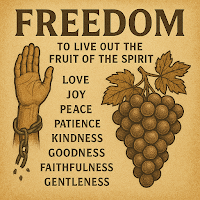This week we will read some challenging words from Jesus as recounted in Luke 9:57-10:11
The Sermon is called Give Up What?!?
Early Thoughts: What could you not give up? What would be too much to ask?
Jesus sometimes asks hard things. Jesus sometimes pushes us to a difficult place. Jesus pushes us to think about what is the highest priority.
 |
| SOurce |
How many of us would find the requests made to bury a parent or go and say farewell to be totally reasonable? Most of us I think. But Jesus tells those people that that is not what he is calling people to.
How many of, when being sent out on a mission would think that the reasonable thing to do is plan what the bare necessities that we have to take are? Jesus tells his friends to take nothing, to be totally reliant on the kindness of strangers, to be incredibly vulnerable.
Where in this string of instructions might you choose to tap out?
IS this where Jesus continues to call us? Does Jesus continue to call us to not do things that seem really important as we choose to follow his path? Does Jesus continue to send us out into the world vulnerable and seemingly unprepared, like lambs in the midst of wolves? (which sounds an awful lot like lambs prepared for the slaughter when I think of it).
 |
| From Agnus DAy |
What if the answer is yes?
What things might we have to leave behind because they get in the way of our expectation of how the Way of Christ should/could/would look? And of course then the real question becomes the one I asked above -- what is too much to ask/what can you or we not give up?
- Security?
- Financial well-being?
- The comfort of the known and familiar?
- Assurance of success (however we define that) or even survival?
I truly believe that the church, the community of the faithful, the followers of Christ need to take these questions very seriously as we move forward. As an institution we have not become really good at risk-taking. As a group we have tended to preference the comfortable place. In more than one congregation the response to financial and human resources dwindling has been a call to do what ever is needed to ensure survival (I once had someone honest enough to say "at least until after my funeral"). But Jesus calls us to not worry about survival or even success(again however we might define that). Jesus challenges us to leave behind those things that might bring comfort and live on trust and faith.
THe way forward is to worry about being faithful and proclaiming the Good New. We don't get there by worrying about survival as a first priority. We don't get there by playing it safe. We don't get there without letting go of some things, even some things we REALLY LOVE.
Can we do that? I'll be honest enough to say that some days it sounds terrifying to me. Then again, Jesus does not ask us to do it alone. We do it with a partner, with a community, as partners in the project. That might make it a little less scary.
--Gord






